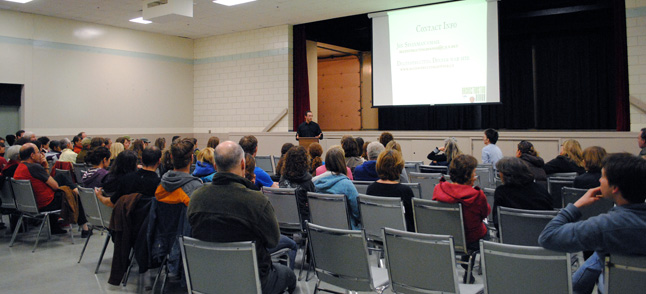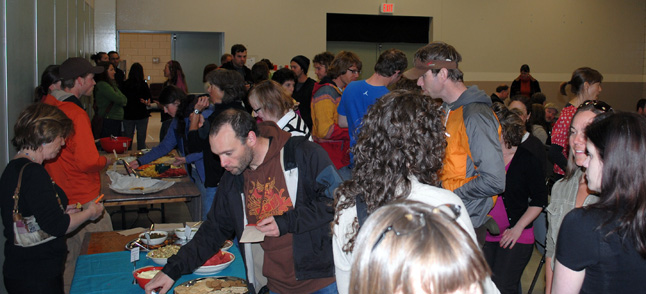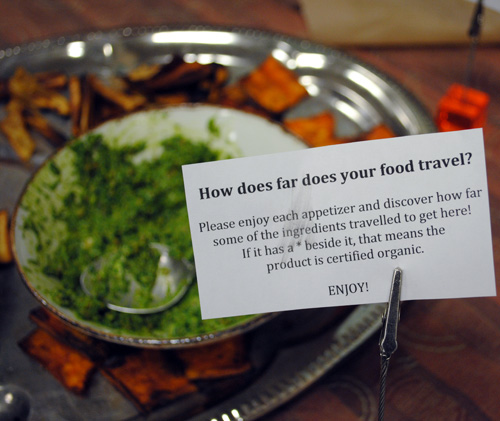By Karen McColl
Why does a Sobeys grocery store in Prince Edward Island carry exclusively USA imported potatoes when potato fields are visible from the parking lot? How can food companies have millions of dollars in profits while the average farmer is facing increasingly large debts? What are modified milk ingredients and what are they doing in my ice cream?
These are just a few of the subjects discussed by food security advocate Jon Steinman on his weekly radio show Deconstructing Dinner, which airs on Kootenay Coop Radio in Nelson, British Columbia.
Steinman spoke in Revelstoke Saturday evening as part of Earth Week activities organized by the North Columbia Environmental Society. Volunteers organized by the NCES provided a delicious spread of appetizers before Steinman’s presentation to ensure everyone had food for thought. Simple instructions adorned the table:
“Please enjoy each appetizer and discover how far some of the ingredients travelled to get here!”
A card beside each appetizer listed every ingredient and how many miles it travelled to get to our plates.
Once the audience was well-fed and satisfied, Steinman launched into his presentation about food security, sovereignty and resiliency.
Resiliency, as described by Steinman, is “the ability of a community to weather economic or environmental challenges.” Resiliency can’t exist without food security.
“I suggest looking at our food not as a cost or an expenditure, but as an investment,” Steinman said.
These investments, according to Steinman, should support personal health and that of the workers, preservation of culture, ethical methods of production, the environment and local economics.
During his presentation Steinman did what he does best: He deconstructed what could be a typical meal: steak, fries, salad, beer and chocolate cake. He went on to show, ingredient by ingredient, that a small number of large corporations and private companies own and produce most of the food available from the grocery store. One of the negative effects of vertical integration is that farmers at the bottom of the chain are powerless.
The good news comes in the form of local initiatives such as independent grocery store cooperatives, community supported grain programs, peer-certified organic production, urban agriculture and farmers markets, among others.
“If you walk into a Safeway and put a dollar on the counter most of that dollar is leaving the community.”
Steinman points out that a major benefit of local initiatives is that the money stays local.
Although the examples Steinman used all came from the Nelson area, there is no reason why a community like Revelstoke couldn’t get involved with the food security movement. All we need are a few movers and shakers to get things started…
For more information about Jon Steinman, his radio program, and the food security movement, visit www.deconstructingdinner.ca.






